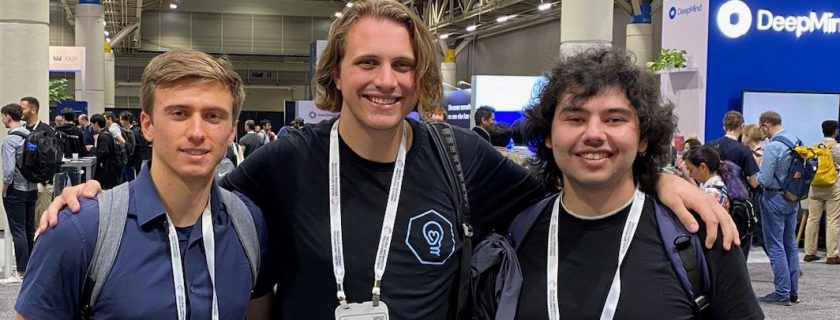The UF Physics exoplanets research team wins the Ariel Machine Learning Data Challenge, an official event at the NeurIPS (Neural Information Processing Systems) conference this year (https://nips.cc/). Ariel is the next large European Space Agency mission to be launched in 2029, which will observe the atmospheres of thousands of extrasolar planets. The goal of the data challenge was “Inferring Physical Properties of Exoplanets From Next-Generation Telescopes.” There were two separate tracks:
- The advanced, “regular track,” which required deriving the correct posterior distributions of the planetary parameters (temperature and chemical composition).
- The simpler, “light track,” which was a regression task to predict the central values of those parameters.
There were more than 200 international teams registered for this competition, which went through several elimination rounds before only the top teams in each track were invited for the final round. Our team, aptly named “Gators,” won FIRST PLACE in the regular track and finished second in the light track. The team consisted of three physics graduate students: Alex Roman, Eyup Unlu, and Roy Forestano; supervised by two Physics faculty (Konstantin Matchev and Katia Matcheva). The win comes with a $2,500 cash prize. In addition, the team was invited to present the winning solution at the NeurIPS conference starting today, and to co-author the resulting paper in the proceedings.
The NeurIPS conference is the most prestigious annual conference in machine learning and computational neuroscience. Congratulations to Alex, Eyup and Roy!
